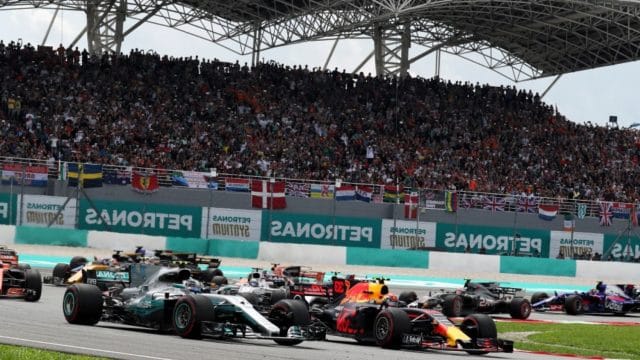Motorsport industry in Malaysia: Former Formula 1 racer Alex Yoong worries about Malaysia’s racing scene’s stagnation. High expenses are deterring talent and industry expansion, he believes. While nearby countries like Thailand, the Philippines, and Indonesia are growing their motorsport industries, Malaysia seems to be falling behind because it is hard to get into.
Young discussed this issue in the third round of the Malaysia Championship Series (MCS). And “Malaysia has been stuck for the past 20 years.” He thinks Malaysian motorsport needs a lot of money to change. “Racing teams and series organizers need sponsors,” Young said. To get these sponsors, the events need to be “packaged in a way that is easy for fans to understand,” which he thinks is missing right now.
Young, who is now 47 years old, has been a key part of the MCS to showcase Malaysian racing. He races with a Suzuki Swift similar to the one he uses to instruct new racers at Axle Sports. Even though the springs on this “school car” leak, it can easily do a lap of Sepang in two minutes and 45 seconds.
Young loves racing, but because he hasn’t competed since 2018, he aims to deliver a clear message to racing fans and potential racers. “It’s not all about the car,” he says. A senior driver advises a novice to practice on simulators before racing. Simulators are affordable and helpful for learning racing basics.
The Malaysian motorsports industry isn’t developing, unlike the rest of Southeast Asia. Former F1 driver Alex Yoong argues high entrance prices are the biggest barrier to talent and success. Sponsorship is important; Tournaments must be user-friendly and engaging to attract sponsors. Alex Yoong competes in the MCS with a modest car to demonstrate that skill is more essential than a vehicle.
Many individuals in the country agree with Alex Yoong that the motorsport business has a lot of promise but is too expensive to use. The racer highlights Malaysian motorsport’s biggest issues with his years of overseas racing experience.
Yoong’s method, both at his academy and in the MCS, is based on the idea that the racer, not the vehicle, is what makes them good. This fresh perspective could change things in a nation where the high cost of luxury cars inhibits young people from attempting. He also emphasizes simulation training before real cars. Simulators can help racers develop safely and affordably in an age when technology can mirror real-world events.
Finally, Malaysia needs a diversified approach to compete with its neighbors in motorsports, who are making achievements. This involves sponsorships and changing how the championships are presented to fans and potential sponsors. Yoong is rightmaking racing easier to understand could be the first step to bringing it back to Malaysia.
Our Reader’s Queries
Which car brand is the best in Malaysia?
Perodua continues to dominate the Malaysian automotive market in 2022, selling around 282 thousand cars. Proton, another local brand, secured the second spot with over 136 thousand cars sold. These leading car brands in Malaysia are setting the pace for the industry and are expected to maintain their strong presence in the market.
How big is Malaysia car market?
The vehicle market in Malaysia is thriving with a remarkable 10.3% increase in Total Industry Volume (TIV), reaching 366,037 units from 331,746 units in the same period last year. The market has not only bounced back to pre-pandemic levels but has also exceeded them, demonstrating its resilience in 2022 and the first half of 2023.
Why is automotive industry important in Malaysia?
Malaysia’s automotive industry is a major player in Southeast Asia, ranking third in the region and 23rd globally. With an impressive annual production output of over 500,000 vehicles, this industry contributes a significant 4% or RM 40 billion to Malaysia’s GDP. It’s also a major employer, providing jobs for over 700,000 people across the country. This thriving ecosystem is a testament to Malaysia’s commitment to innovation and growth in the automotive sector.
What is an example of automobile industry in Malaysia?
Perodua and Proton, two of Malaysia’s homegrown automotive manufacturers, have emerged as the top-selling car brands in the country. Their success can be attributed to their flagship models, with the Proton Saga alone accounting for nearly 50% of the company’s sales volume. These national brands have truly made a mark in the automotive industry, proving that they can compete with the big players in the market.
